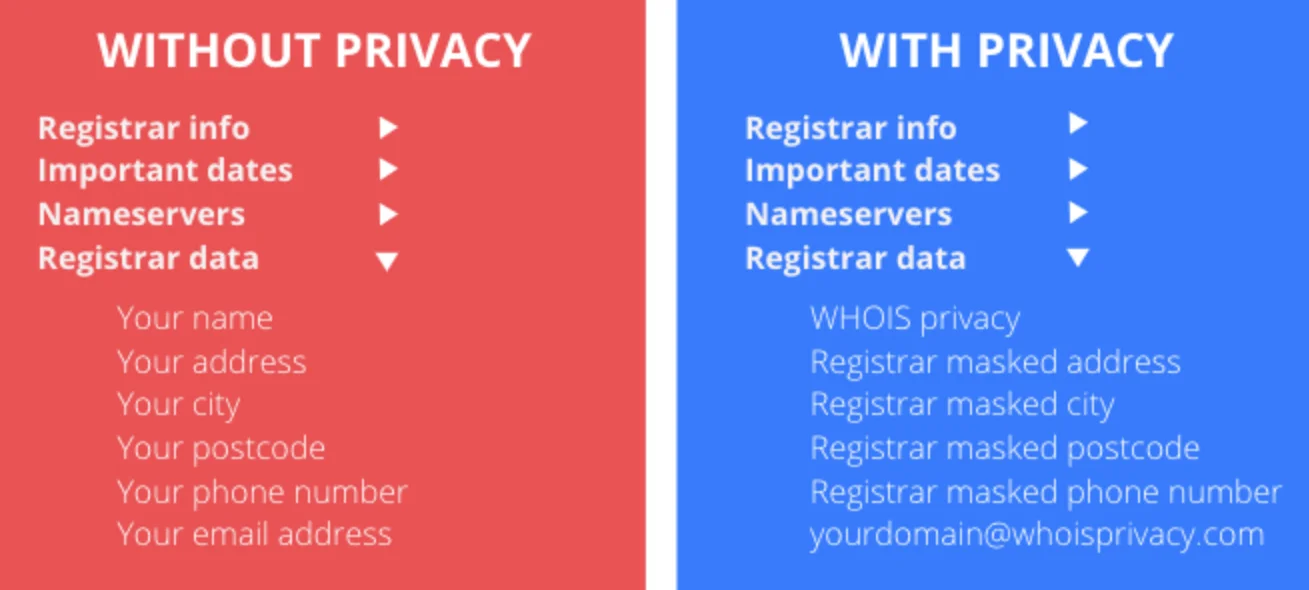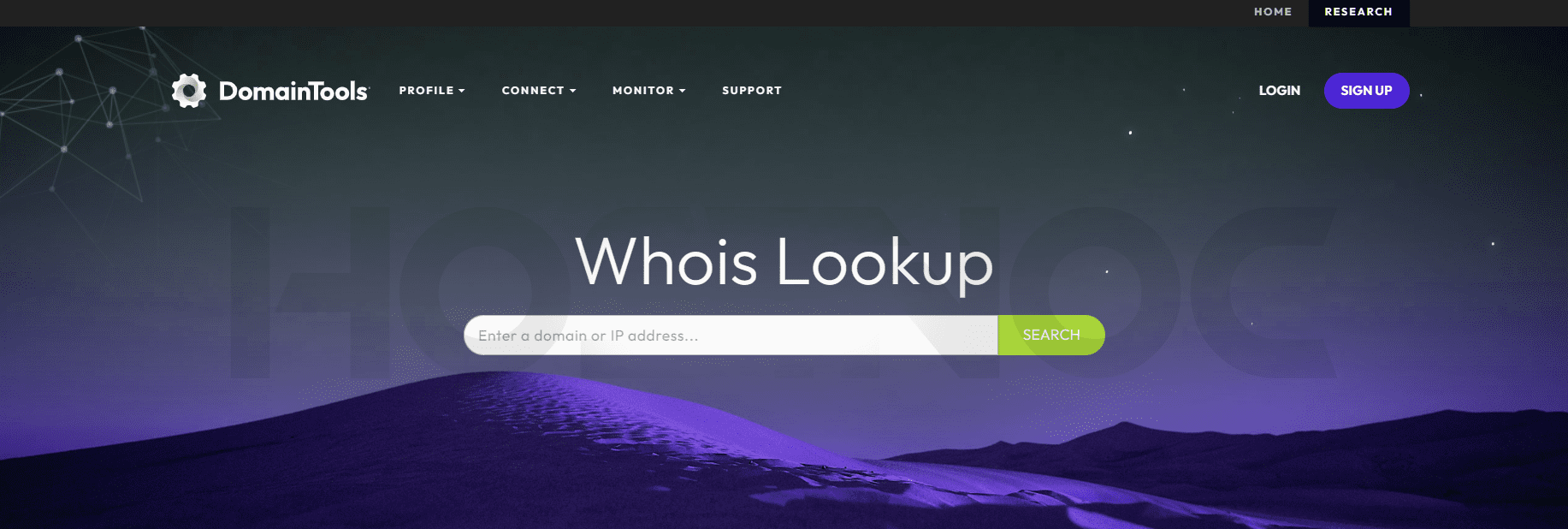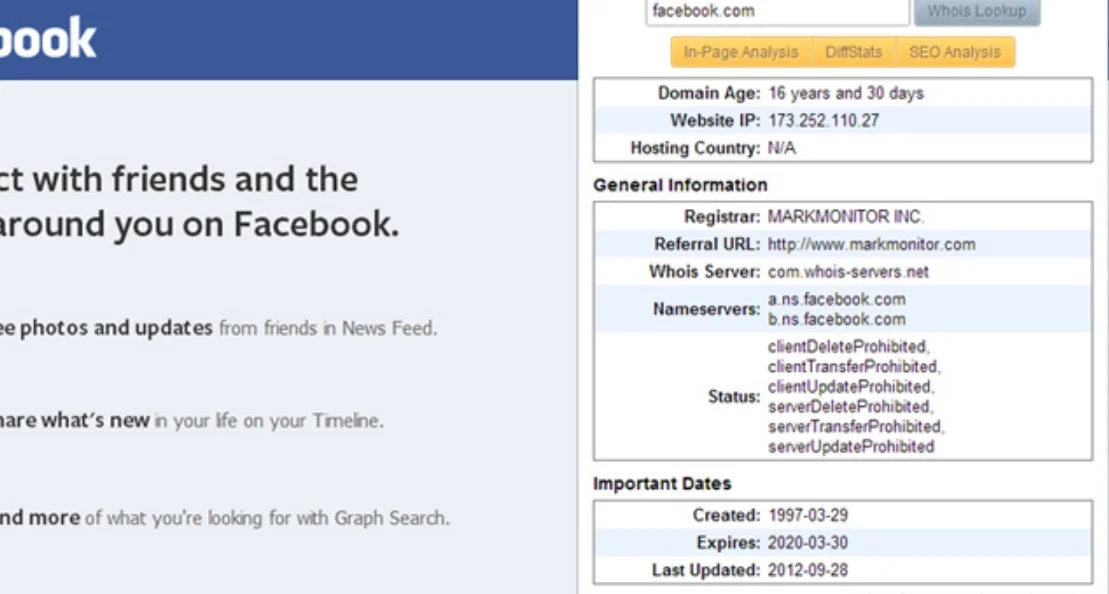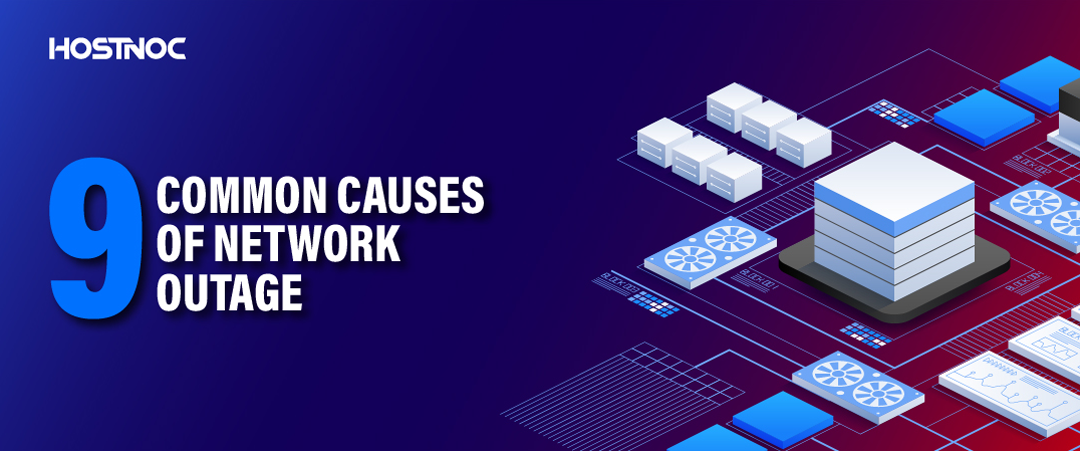Blogs

7 Web Hosting Trends You Should Keep An Eye On In 2024
December 13, 2023
7 Priorities IT Leaders Must Set For 2024
January 10, 2024WHOIS Lookup: Everything You Need To Know
WHOIS, a portmanteau of “who is,” is a protocol used to query databases that store registration information about domain names and IP addresses.
The WHOIS lookup tool serves as a gateway to access this data, allowing users to retrieve details about domain ownership, registration and expiration dates, contact information, and more.
The information collected through WHOIS is instrumental for various purposes, including domain administration, legal investigations, and cybersecurity.
WHOIS, a portmanteau of “who is,” is a protocol used to query databases that store registration information about domain names and IP addresses.
The WHOIS lookup tool serves as a gateway to access this data, allowing users to retrieve details about domain ownership, registration and expiration dates, contact information, and more.
The information collected through WHOIS is instrumental for various purposes, including domain administration, legal investigations, and cybersecurity.
What is WHOIS Lookup?
WHOIS lookup is a query and response protocol used to look up information about domain names, IP addresses, and other entities on the Internet. The term “WHOIS” is derived from the question “Who is responsible for this domain?”
When you perform a WHOIS lookup, you are requesting information about the owner, contact details, registration and expiration dates, and other relevant information associated with a particular domain name or IP address.
What is the Purpose of WHOIS?
The WHOIS system serves several purposes, including.
1. Domain Registration Information.
It allows users to find out who owns a specific domain name, when it was registered, and when it is set to expire.
2. Contact Information.
It provides contact details for the domain’s owner, administrator, and other relevant contacts. This information is useful for various purposes, including addressing technical issues or reporting abuse.
3. Name Server Information.
WHOIS also reveals the name servers associated with a domain, which are responsible for handling the DNS (Domain Name System) records for that domain.
4. Registrar Information.
You can find out which domain registrar is responsible for the registration of a particular domain.
5. IP Address Information.
In addition to domain names, WHOIS can be used to look up information about IP addresses, including their ownership and registration details.

To perform a WHOIS lookup, you can use various online tools or query WHOIS databases directly through command-line interfaces or specific websites provided by domain registrars. Please note that the availability and format of WHOIS information may vary depending on the top-level domain (TLD) and the domain registrar’s policies.
WHOIS Lookup Process.
1. Selecting a WHOIS Lookup Tool.
When selecting a WHOIS lookup tool, users may consider web-based platforms for user-friendly interfaces and accessibility, domain registrars’ interfaces for seamless integration with domain management, or specialized WHOIS command-line utilities for advanced users seeking detailed information through terminal commands.
Exploring these options ensures users find a tool that aligns with their specific needs and preferences in retrieving domain registration details.
2. Entering the Domain Name.
To initiate a lookup, users input the domain name they want information about. Some tools also support IP address queries, providing details about the associated domain.
3. Analyzing the Results.
The WHOIS lookup results present a wealth of information, including the domain’s registration and expiration dates, domain registrar details, and the name and contact information of the registrant, administrative, and technical contacts.
Key Information Revealed by WHOIS Lookup

1. Administrative and Technical Contacts:
These contacts play crucial roles in managing the domain. WHOIS provides their names, email addresses, and other relevant details.
2. Domain Registration and Expiry Dates:
Users can ascertain when a domain was registered and when it is set to expire. This information is vital for domain management and renewal purposes.
3. Domain Registrar Details:
WHOIS lookup reveals the registrar responsible for managing the domain. This information is useful for contacting the registrar for domain-related queries.
4. Name Servers:
The name servers associated with a domain are disclosed, aiding in understanding the infrastructure supporting the domain.
5. DNS Records:
Some WHOIS services provide additional DNS information, such as MX records for email servers and other domain-related records.

The Importance of WHOIS Lookup.
WHOIS lookup serves a myriad of purposes, contributing to the smooth functioning and security of the internet. Some key aspects highlighting its importance include:
1. Domain Ownership Verification.
WHOIS lookup is a vital tool for verifying the legitimacy of a domain. Individuals and businesses can use it to confirm the ownership details of a website before engaging in any transactions.
2. Cybersecurity Investigations.
Security professionals use WHOIS lookups to investigate and mitigate potential threats, such as identifying malicious domains, tracking down cybercriminals, and uncovering patterns of cyberattacks.
3. Brand Protection.
Companies utilize WHOIS data to monitor and protect their brand names. This involves identifying unauthorized use of trademarks or domains that may be detrimental to the brand’s reputation.
4. Legal and Regulatory Compliance.
WHOIS data is often used in legal proceedings, helping to establish ownership and responsibility in cases of disputes, intellectual property infringements, or cybercrimes.
5. Domain Management.
Website administrators and domain owners utilize WHOIS lookup to effectively manage their domains. This includes monitoring expiration dates, updating contact information, and ensuring compliance with registration requirements.
Challenges and Concerns.
While WHOIS lookup provides valuable information, it also faces challenges and concerns that have prompted discussions around privacy and data protection. Some key issues include:
1. Privacy Concerns.
WHOIS data includes personal and contact information, raising privacy concerns for domain owners. In response, some domain registrars offer privacy protection services, allowing registrants to conceal their personal details in public WHOIS records.
2. Inconsistent Data Accuracy.
The accuracy of WHOIS data can vary, as it relies on information provided by domain registrants. Inaccurate or outdated information can hinder the effectiveness of a WHOIS lookup for legitimate purposes.
3. Abuse of WHOIS Information.
Cybercriminals may exploit WHOIS data for malicious purposes, such as social engineering attacks or targeted phishing campaigns. Balancing the need for transparency with the protection of sensitive information is an ongoing challenge.
Future Trends and Developments.
As technology and internet governance continue to evolve, WHOIS lookup is also expected to change. Some anticipated trends and developments include:
1. Enhanced Privacy Protection.
With increasing awareness of privacy concerns, there is a growing emphasis on enhancing privacy protection for domain owners. Innovations such as decentralized identity solutions may play a role in achieving this balance.
2. Standardization and Interoperability.
Efforts to standardize WHOIS data formats and improve interoperability among WHOIS databases may lead to more efficient and reliable information retrieval processes.
3. Integration with Security Platforms.
WHOIS lookup is likely to be integrated more seamlessly with cybersecurity platforms, enabling real-time threat intelligence and automated responses to emerging security threats.
4. Global Collaboration.
International collaboration and standardization efforts may lead to a more cohesive and globally accessible WHOIS system, facilitating cross-border investigations and cooperation.
Read More: 6 Ways To Fix ERR_CONNECTION_RESET Error
Conclusion.
In the vast and interconnected realm of the internet, WHOIS lookup stands as a vital tool for unraveling the mysteries behind domain names. Its ability to provide detailed information about domain ownership, registration dates, and associated contacts makes it an indispensable resource for individuals, businesses, and cybersecurity professionals.
While challenges related to privacy and data accuracy persist, ongoing developments and innovations promise a future where WHOIS lookup continues to evolve, adapting to the changing landscape of the digital world. As we navigate this dynamic environment, the insights gleaned from WHOIS lookup will remain a key component in securing the integrity and transparency of the online ecosystem.
Did this article help you in understanding everything you need to know about WHOIS lookup? Share it with us in the comments section below.
Featured Post
How to Migrate Your Website to a New Host Without Downtime?
Website downtime during migration is one of the biggest concerns for site owners looking to switch hosting providers. Whether you are looking for better performance, more […]
9 Common Causes of Network Outages
Power-related issues remain the leading cause of major data center outages, responsible for 54% of cases according to Uptime Institute’s 7th annual outage analysis report, while […]
5 Common Negative Consequences of Downtime For Businesses
Table of Contents 5 Common Negative Consequences of Downtime For Businesses 1. Operational Inefficiencies 2. Reputation Damage 3. Higher Operational Costs 4. Revenue Loss 5. Loss […]












